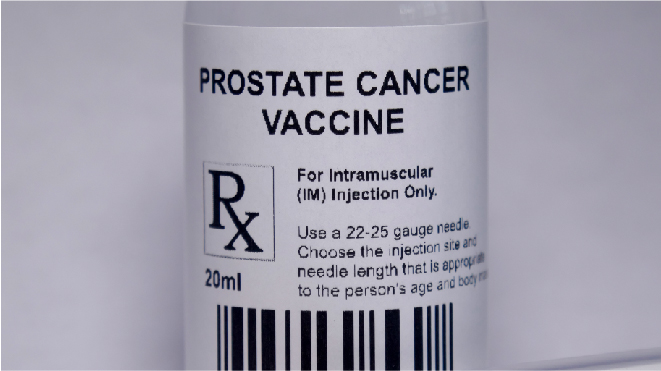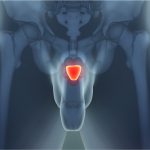Prostate cancer occurs in the prostate, a gland in the male reproductive system. Read more about prostate cancer here.
What is hormone therapy for prostate cancer?
It aims at reducing the male hormones, called androgens and restrict their impact on prostate cancer. Hormone therapy does not completely cure prostate cancer, it can only restrict its growth. Androgens help in the growth of prostate cancer. Testosterone and dihydrotestosterone (DHT) are the main androgens in the body, which are secreted by the testicles and the adrenal gland. Lowering the levels of these hormones in the body helps in shrinking the prostate cancer tumours and restrict the growth of prostate cancer.
When is hormone therapy used?
Hormone therapy for prostate cancer is used alone or in combination with other treatments. Depending on the stage and type of cancer, and the medical history of the patient along with the general health of the patient hormone therapy is used in the following ways:
- For metastasized cancer, hormone therapy is used alongside surgery and radiation.
- For recurrent prostate cancer
- As a primary treatment along with radiotherapy. Read more about radiotherapy for prostate cancer here.
- As a part of palliative therapy and supportive care
Types of hormone therapy:
Based on various factors, the type of hormone therapy prescribed varies for each patient. Following are the types of hormone therapy used for prostate cancer.
Treatments to lower androgen levels:
Orchiectomy (surgical castration):
This is a form of surgical procedures, but a major part of the treatment involves hormone therapy. It is an outpatient procedure which involves the removal of the testicles followed by hormone therapy. This is one of the cheapest and simplest types of hormone therapy. Read more about surgery for prostate cancer here.
Orchiectomy is carried out by removing the testicles which are responsible for the production of the pandrogens. It helps in restricting the growth of cancer and shrink the tumours. But unlike other treatments, it is a permanent form of hormone therapy.
LHRH agonists:
Luteinizing hormone-releasing hormone (LHRH) agonists are drugs that are used as a part of hormone therapy. They are also referred as chemical castration or medical castration. These drugs aim at lowering the androgen levels, especially the testosterone levels in the body.
Despite being an expensive therapy, it is widely chosen because the treatment is done with testicles in place. Initially these drugs increase the levels of the testosterone and then work to decrease it. This is known as flare effect. This can be avoided by using anti-androgen drugs during the beginning of the therapy. Read more about drugs used for prostate cancer here.
LHRH antagonist:
LHRH antagonists also aim.at decreasing the testosterone levels in the body. Following are the drugs used as LHRH antagonists:
Degarelix is a drug used as an LHRH antagonist. This drug lowers the testosterone levels in the body more quickly than the other drugs do and does not cause any tumour flare. It is prescribed for advanced prostate cancer and is given intravenously.
CYP17 Inhibitors
Abiraterone is used in treating high risk prostate cancers and castrate-resistant cancers which grow despite lower levels of androgens. It works by blocking the CYP17 enzyme and restricting the cells from making the androgens. It is prescribed for patients who have not been any other form of hormone therapy and is taken orally or in patients not responding to earlier hormonal therapies. Since it reduces the growth of other hormones also in the body, it is given alongside prednisone (a corticosteroid drug). This combination also helps in reducing the impact of certain side effects.
Anti-androgens:
Anti-androgens are a group of drugs which restrict the functioning of the androgens. These drugs bind to the androgens receptors so that they cannot function anyone. They are often given in combination with other treatments like orchiectomy or LHRH agonists. This procedure is known as combined androgen block (CAB). Anti-androgens are also used during the first weeks when the LHRH antagonists are prescribed to reduce tumour flare. In a few cases, when the anti-androgens stop working, the treatment is withheld for a few days to stop the growth of the cancer. These drugs are taken orally. The most commonly used anti-androgens are:
- Flutamide
- Bicalutamide
- Nilutamide
- Enzalutamide
- Apalutamide
- Estrogens
- Ketoconazole
Side effects of hormone therapy in prostate cancer:
Hormone therapy causes lower androgen levels in the body which leads to the following side effects:
- Reduced or absent sexual desire
- Erectile dysfunction. Read more about erectile dysfunction post treatment here.
- Shrinking of testicles and penis
- Hot flushes
- Tender breasts
- Growth of breath tissues
- Bone thinning leading to fractures
- Anemia
- Reduced mental sharpness
- Loss of muscle mass
- Obesity
- Fatigue
- Higher cholesterol levels
- Depression
- Diabetes
- Disturbances in the heart rhythm leading to higher blood pressure and heart strokes.
Outlook:
The dosage of hormonal therapy could vary from once in a week to a month depending on the stage and type of the cancer. Tolerance of the patient and the previous treatment given for prostate cancer also play an important role in determining the dosage of the hormonal therapy.
This treatment alone does not completely eliminate the cancer from the body, but restricts the growth of the cancer. When given in combination with other treatments, it has a good success rate in treating prostate cancer. Read more about treatment outcomes for prostate cancer here.




